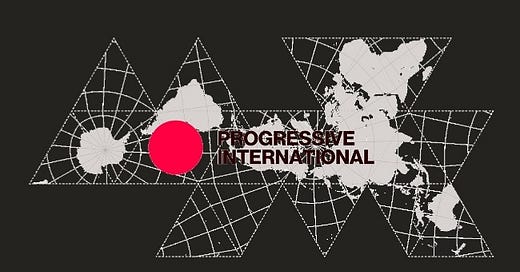The Bandung Conference took place 68 years ago this week. Held in Bandung, Indonesia, the Conference of Afro-Asian Peoples helped power unity among newly-decolonized states and lay the groundwork for the creation of the Non-Aligned Movement six years later.
The conference brought together 29 nations representing more than half the world’s population. Western colonial powers were explicitly excluded, allowing those present to grapple with issues common to the peoples of both continents: sovereignty, racism, nationalism and anti-colonial struggle.
In his address, Chinese Premier Zhou Enlai set out the conference’s goals: “The Asian and African countries, opposing colonialism and defending national independence, treasure all the more their own national rights. The people of all dependent countries should enjoy the right of national self-determination, and should not be subjected to persecution and slaughter. People irrespective of race or colour should all enjoy fundamental human rights and not be subjected to any maltreatment.”
Fearing this basic equality between peoples and nations, the US and UK governments attempted to undermine Afro-Asian unity. The British, for example, strong-armed the Gold Coast (later renamed Ghana after independence) and Singapore, both under dominion status, not to send delegates to Indonesia.
Through allied partners in Bandung, the UK and US manipulated the debate to prevent a resolution which, the UK Foreign Office said, may be “advantageous to the communists or inimical to British interests.” They set out "to cause maximum embarrassment" to a rising communist China. The UK government orchestrated an extensive propaganda campaign, urging delegates to “resist proposals that the Conference should endorse controversial claims for extensions of sovereignty.”
Despite the meddling of the imperial powers, the conference was a success. The result was the creation of the 10 Bandung principles:
Respect for fundamental human rights and for the purposes and principles of the charter of the United Nations.
Respect for the sovereignty and territorial integrity of all nations.
Recognition of the equality of all races and of the equality of all nations large and small.
Abstention from intervention or interference in the internal affairs of another country.
Respect for the right of each nation to defend itself, singly or collectively, in conformity with the charter of the United Nations.
(a) Abstention from the use of arrangements of collective defence to serve any particular interests of the big powers (b) Abstention by any country from exerting pressures on other countries.
Refraining from acts or threats of aggression or the use of force against the territorial integrity or political independence of any country.
Settlement of all international disputes by peaceful means, such as negotiation, conciliation, arbitration or judicial settlement as well as other peaceful means of the parties own choice, in conformity with the charter of the United Nations.
Promotion of mutual interests and cooperation.
Respect for justice and international obligations.
These principles are as relevant today as they were in 1955. Once more, the peoples of the Global South, representing 80 percent of the world’s population, are beginning to assert themselves, raising calls for peace, sovereignty, and principled non-alignment.
President Lula in Brazil, back in the Palácio de Alvorada, is among those giving form to these demands, renewing Latin American and Caribbean integration, proposing a Peace Club on Ukraine, and challenging the dominance of the US dollar in international trade.
But he is far from alone. A renewed project of non-alignment is being born, reflecting the continued struggle to chart a new world order — to create new international institutions that reject the zero-sum mentality of the Cold War and build a foundation for cooperation and peace.
History doesn’t move in straight lines. It zigs and zags. But the Bandung spirit lives on in the desire of peoples of the world to live with freedom, dignity, and mutual respect.
In solidarity,
The Progressive International Secretariat



